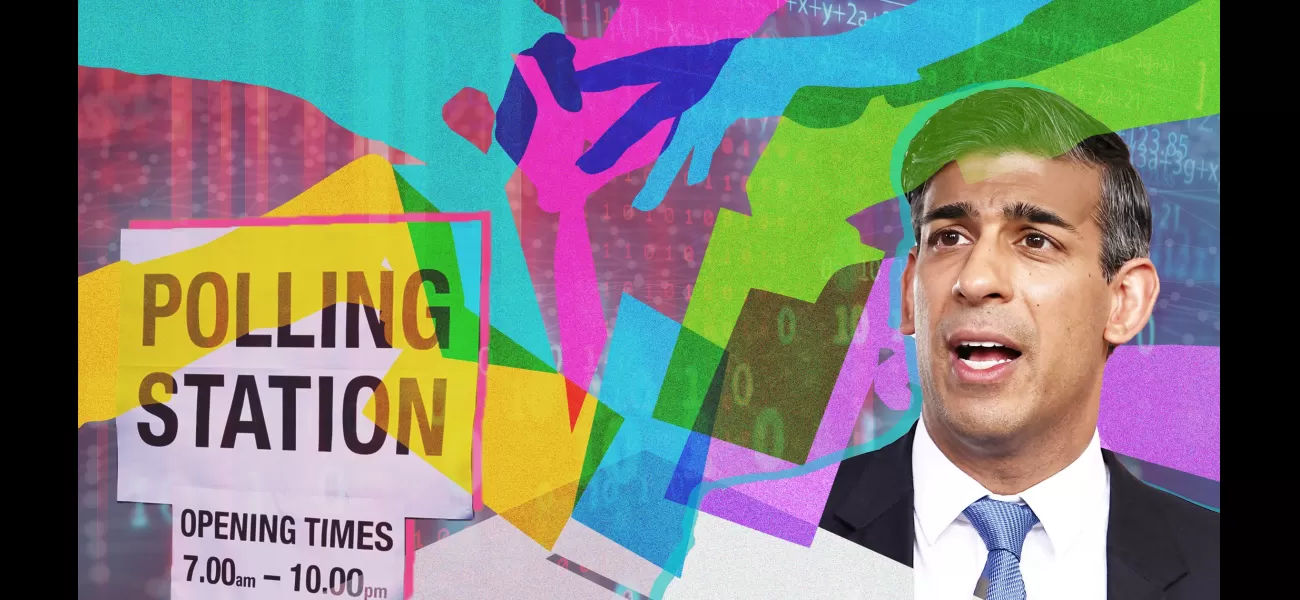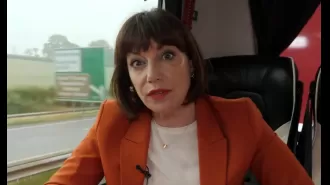AI's influence on the General Election could be huge.
Fake videos to have significant impact on future elections.
May 23rd 2024.

It's a valid question - would artificial intelligence need identification to cast a vote? According to Dame Wendy Hall, a top computer scientist who co-chaired the government's AI review in 2017, AI is going to play a major role in this year's General Election. From deepfake speeches to AI-generated photographs, social media users may struggle to distinguish between what is real and what is fake. With Prime Minister Rishi Sunak announcing a snap election on July 4th, the impact of AI on the democratic process is a growing concern.
During an interview with BBC Radio 4's Today programme podcast, Dame Wendy suggested that social media platforms could limit political posts on polling day in order to prevent the spread of misinformation. She also warned that the use of AI-generated images and videos could have a significant impact on future elections around the world, including the upcoming U.S. presidential election in November.
When asked about potential risks of AI on the democratic process, Dame Wendy expressed her concern, stating that it may be too late to take action for this year's elections. She emphasized the importance of public awareness and the responsibility of the media to inform the public about the origin of information they see on social media. According to Dame Wendy, there is not enough time to change laws or implement technical solutions before the upcoming elections, so it is crucial for people to critically evaluate the information they are exposed to.
Speaking of other elections around the world, the ongoing Indian general election has been a prime example of how AI can manipulate truth. As other major elections, such as the U.S. presidential election, are approaching, the use of AI in politics is a growing concern. Already, we have seen how AI has been used to create fake videos and images of political figures, causing confusion and spreading false information.
Dame Wendy also suggested that social media companies like Facebook and X could do more to prevent the spread of misinformation on their platforms. While acknowledging that her idea was not fully developed, she proposed the idea of an embargo on social media posts close to the election day, similar to the ban on campaigning. This could potentially help to control the spread of false information, but it may not have a significant impact on postal voters, who can submit their ballots before election day.
In the end, it is clear that the use of AI in politics is a complex and concerning issue that requires further attention and regulation. As technology continues to advance, it is important for both the public and social media companies to be aware of the potential dangers and take necessary precautions to protect the integrity of democratic elections.
During an interview with BBC Radio 4's Today programme podcast, Dame Wendy suggested that social media platforms could limit political posts on polling day in order to prevent the spread of misinformation. She also warned that the use of AI-generated images and videos could have a significant impact on future elections around the world, including the upcoming U.S. presidential election in November.
When asked about potential risks of AI on the democratic process, Dame Wendy expressed her concern, stating that it may be too late to take action for this year's elections. She emphasized the importance of public awareness and the responsibility of the media to inform the public about the origin of information they see on social media. According to Dame Wendy, there is not enough time to change laws or implement technical solutions before the upcoming elections, so it is crucial for people to critically evaluate the information they are exposed to.
Speaking of other elections around the world, the ongoing Indian general election has been a prime example of how AI can manipulate truth. As other major elections, such as the U.S. presidential election, are approaching, the use of AI in politics is a growing concern. Already, we have seen how AI has been used to create fake videos and images of political figures, causing confusion and spreading false information.
Dame Wendy also suggested that social media companies like Facebook and X could do more to prevent the spread of misinformation on their platforms. While acknowledging that her idea was not fully developed, she proposed the idea of an embargo on social media posts close to the election day, similar to the ban on campaigning. This could potentially help to control the spread of false information, but it may not have a significant impact on postal voters, who can submit their ballots before election day.
In the end, it is clear that the use of AI in politics is a complex and concerning issue that requires further attention and regulation. As technology continues to advance, it is important for both the public and social media companies to be aware of the potential dangers and take necessary precautions to protect the integrity of democratic elections.
[This article has been trending online recently and has been generated with AI. Your feed is customized.]
[Generative AI is experimental.]
0
0
Submit Comment





